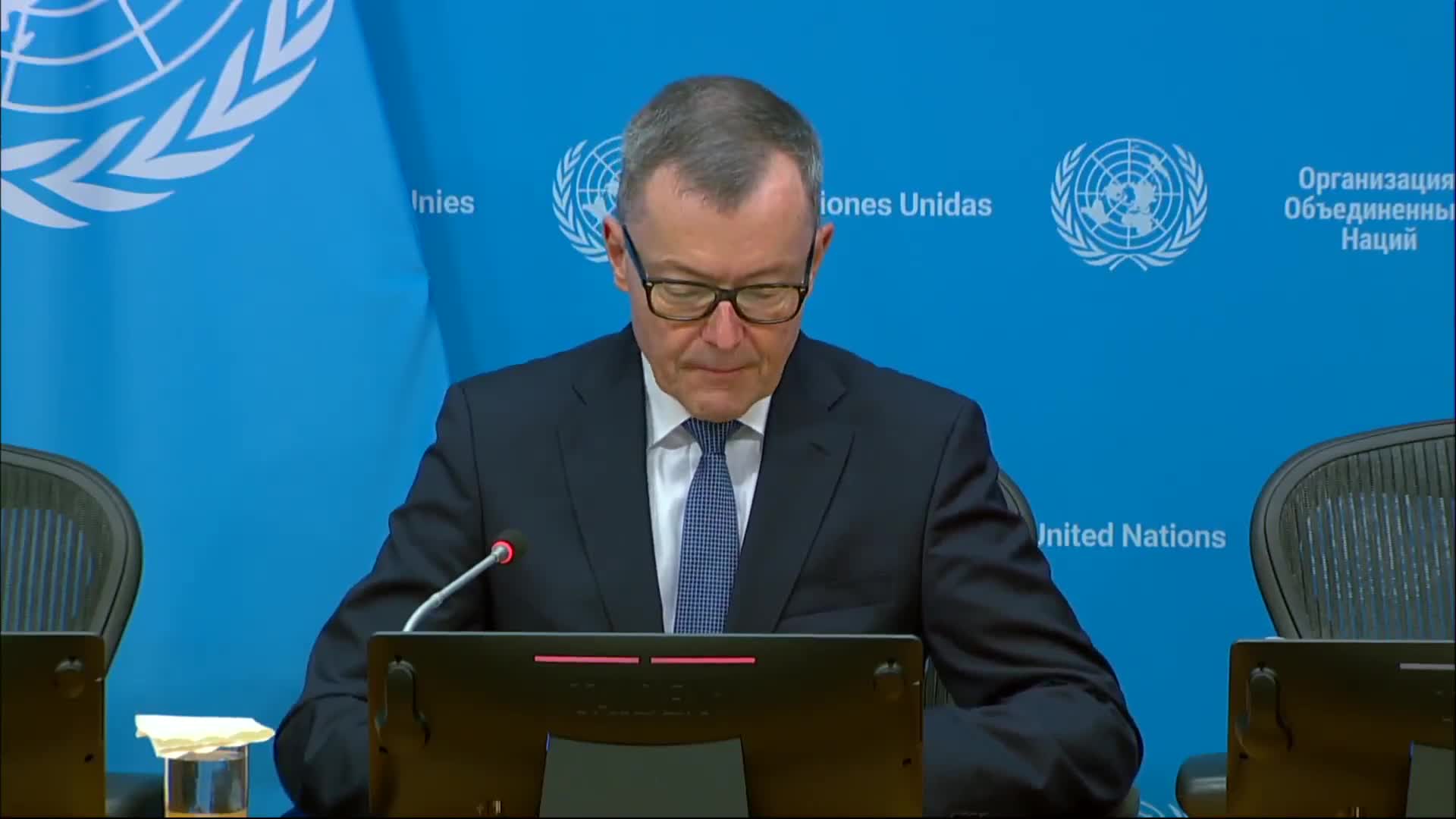Human Rights Council president warns budget shortfalls are hindering implementation of resolutions

Summary
Ambassador Joerg Lauber told reporters the council adopted 35 resolutions at its sixtieth session but budgetary constraints and state disengagement are limiting the council's ability to follow through, including delaying a commission of inquiry for eastern Democratic Republic of the Congo because funding is not yet available.
Ambassador Joerg Lauber, president of the United Nations Human Rights Council, told reporters in New York that budget constraints are limiting the council’s ability to implement decisions reached at its sixtieth session.
Lauber said the council adopted 35 resolutions during the session, including a new investigative mechanism on Afghanistan and a merger of the mandates on slavery and human trafficking, but that financial shortfalls have forced cuts to meeting time and delayed on-the-ground follow-up. “The other consequence we saw and we see increasingly is decisions taken by the council not being implemented because the money, is missing,” he said.
Why it matters: The Human Rights Council relies on member-state funding to staff and finance investigative work and special procedures. Lauber cited the commission of inquiry on the human rights situation in eastern Democratic Republic of the Congo as an example: he said experts have been nominated but funds to start the commission have not been made available.
Details from the session: Lauber listed a range of outcomes from the sixtieth session, saying the council renewed mandates related to Sudan, Afghanistan, Sri Lanka and the Russian Federation, concluded mandates in Somalia and the DRC, and postponed the adoption of Nicaragua’s Universal Periodic Review outcome to invite continued engagement. He also said the council completed nine general debates, 41 dialogues and a UPR on 14 countries despite reduced meeting time.
Lauber described a practical effect of the budget shortfall: he said the council had to cut down speaking time for delegations, an action he called small in appearance but significant in practice because “multilateral diplomacy is about meeting and having sufficient time to make your case and and exchanging.”
Lauber said the council will look for ways to become more efficient while urging member states to provide “the minimum funding necessary for the council to fulfill its mandate.” He identified a broader risk beyond finances: “If states disengage in the work of the council…that is for me the single threat,” he said, linking funding shortfalls and political disengagement.
What was not decided: Lauber described the problem as one of implementation and financing; the briefing recorded no formal vote or new funding commitment.
Next steps: Lauber said the council will seek to rationalize and streamline work but emphasized that efficiency measures cannot replace the need for adequate funding to carry out investigations and mandates.

